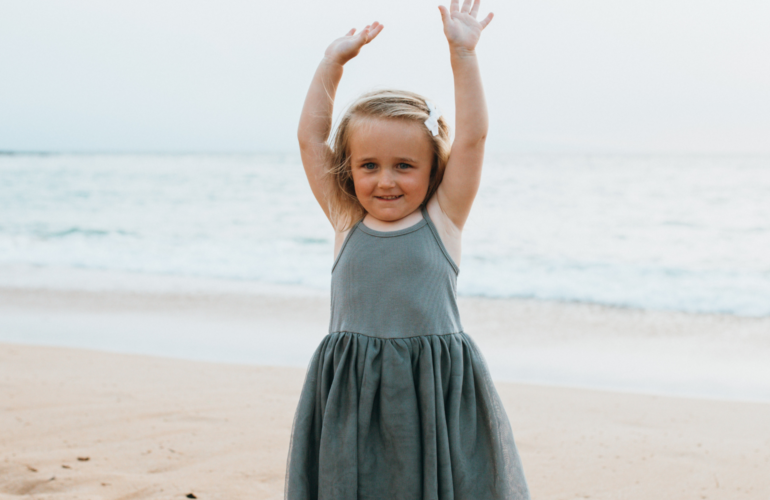It was a typical day in May, the Thursday before Memorial Day. Our family was looking forward to a fun holiday weekend. But it turned out the day wasn’t typical at all. We noticed Courtney — our precious 22-month-old daughter — was having trouble balancing and walking.
This was very disturbing behavior for our usually active girl who had hit all her milestones and seemed very healthy. We took her directly to her pediatrician. The doctor validated our parental instinct that something was very wrong and sent us to UCSF Benioff Children’s Hospital in San Francisco immediately.
The UCSF medical team rushed us to an MRI scan upon arrival at the emergency room. Just hours later we received the devastating news that our sweet baby girl had a large tumor on the her cerebellum. She was immediately checked into the ICU. What began as a typical day was suddenly an atypical nightmare and without question, the worst night of our lives. We both had so many questions, but very few answers.
There were so many unknowns. What type of brain tumor did Courtney have? Was it cancer? Was it operable? Would she need chemotherapy or radiation? Could the hydrocephalus (accumulation of brain fluid) she had developed as a result of the tumor be treated? Would she survive?
We learned that brain tumors are very often hard to detect as the symptoms — especially in children — are more quickly attributed to more common ailments. We began to get some answers over the following two weeks in the UCSF Pediatric Intensive Care Unit from an incredible team of doctors and nurses caring for our baby girl.
We were in shambles, but had to be strong for our daughter. We learned that you never know how strong you are until being strong is the only choice you have, and the strongest of all was our Courtney.
It was all so unimaginable. We looked at our beautiful baby girl in a hospital bed with tubes and IVs all over her, facing a truly terrifying and intense surgery. As fellow parents can imagine, each of us would have done anything to trade places with her. But our primal inclinations to switch places were dispelled by the experienced caregivers around us, promising that children are incredibly resilient. The words of the doctors and nurses surrounding us seemed validated by Courtney herself, who was shockingly calm. Somehow our beautiful girl, not yet 2 years old, knew that she was very sick, but recognized that we were all there to make her better.
Just days later on June 1, 2021, Courtney underwent an eight-hour surgery to remove the tumor performed by the amazing surgeons at UCSF, led by Dr. Nalin Gupta. It was the longest eight hours of our lives, but we will never forget Dr Gupta looking at us both square in the eyes after the surgery and saying, “I got it all.”
The surgeons and oncologist told us that the tumor was a benign, slow-growing, Grade 1 Juvenile Pilocytic Astrocytoma. This meant while Courtney had the devastating diagnosis of a brain tumor, she was incredibly fortunate that the tumor was non-cancerous and potentially entirely curable with a successful surgery.
Thanks to the amazing care of our superhero doctors and nurses, Courtney quickly started to recover and we never left her side. We held her, sang to her, and told her she would very soon walk out of that hospital and then back into the front door of our home.
Our time in the PICU was full of our loving village — surrounded by family with support so that we could be with Courtney and that her brother, Conor, would be well cared for as well. Our family from Southern California (Courtney’s grandmother, aunt, and uncle) came to stay with us, and our local relatives (grandparents, aunts, uncles, cousins) were also there around the clock. Neighbors dropped off food for our family, treats to take with us to the hospital for the nurses and doctors, and presents for the kids to keep them occupied. We will never forget the tremendous generosity of our loved ones and will always be grateful.
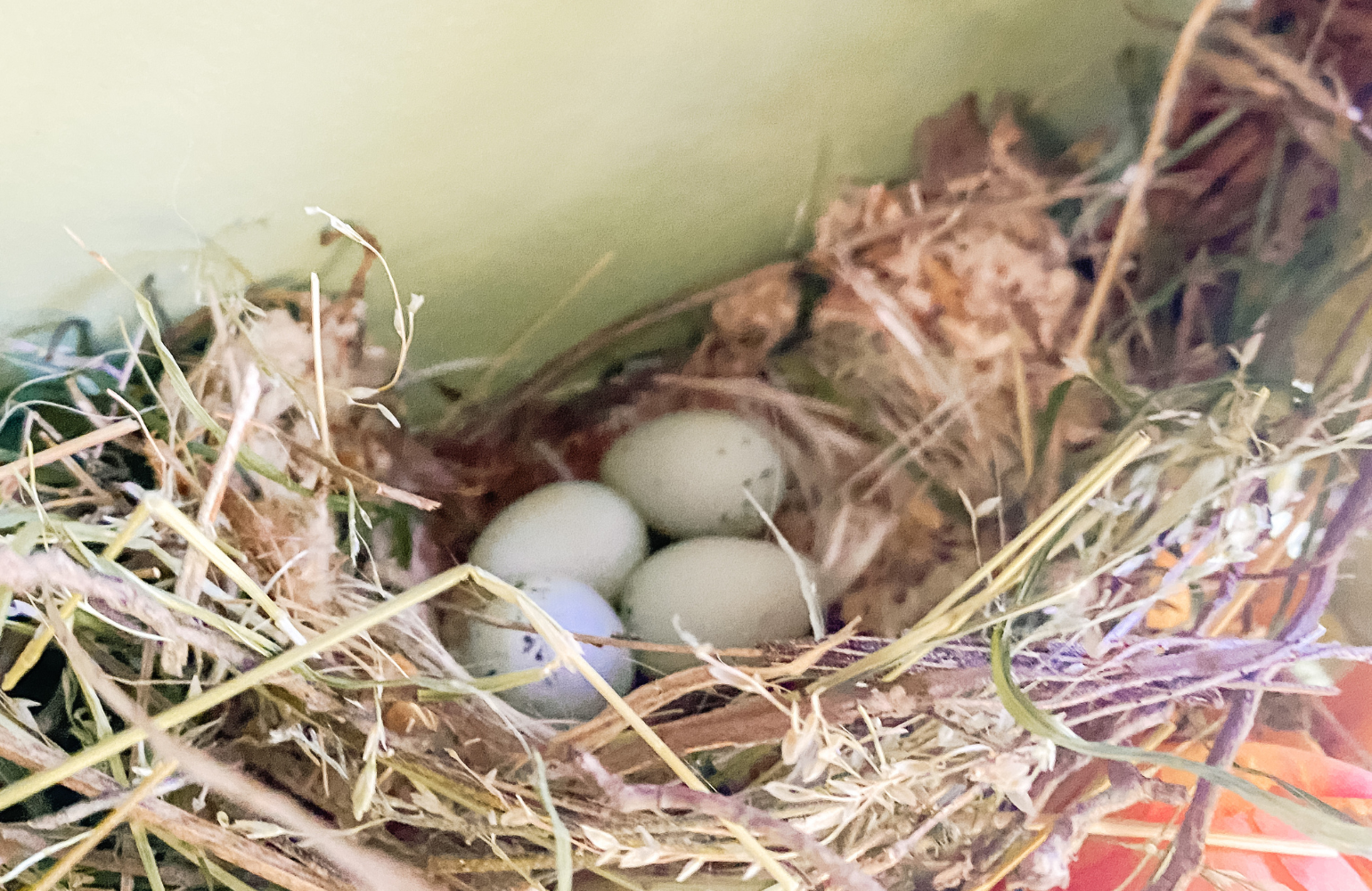
While Courtney recovered at the hospital, a mother bird made a nest on our front-door wreath and soon laid her eggs. This beautiful natural sign of life, growth, health and family stability was magical.
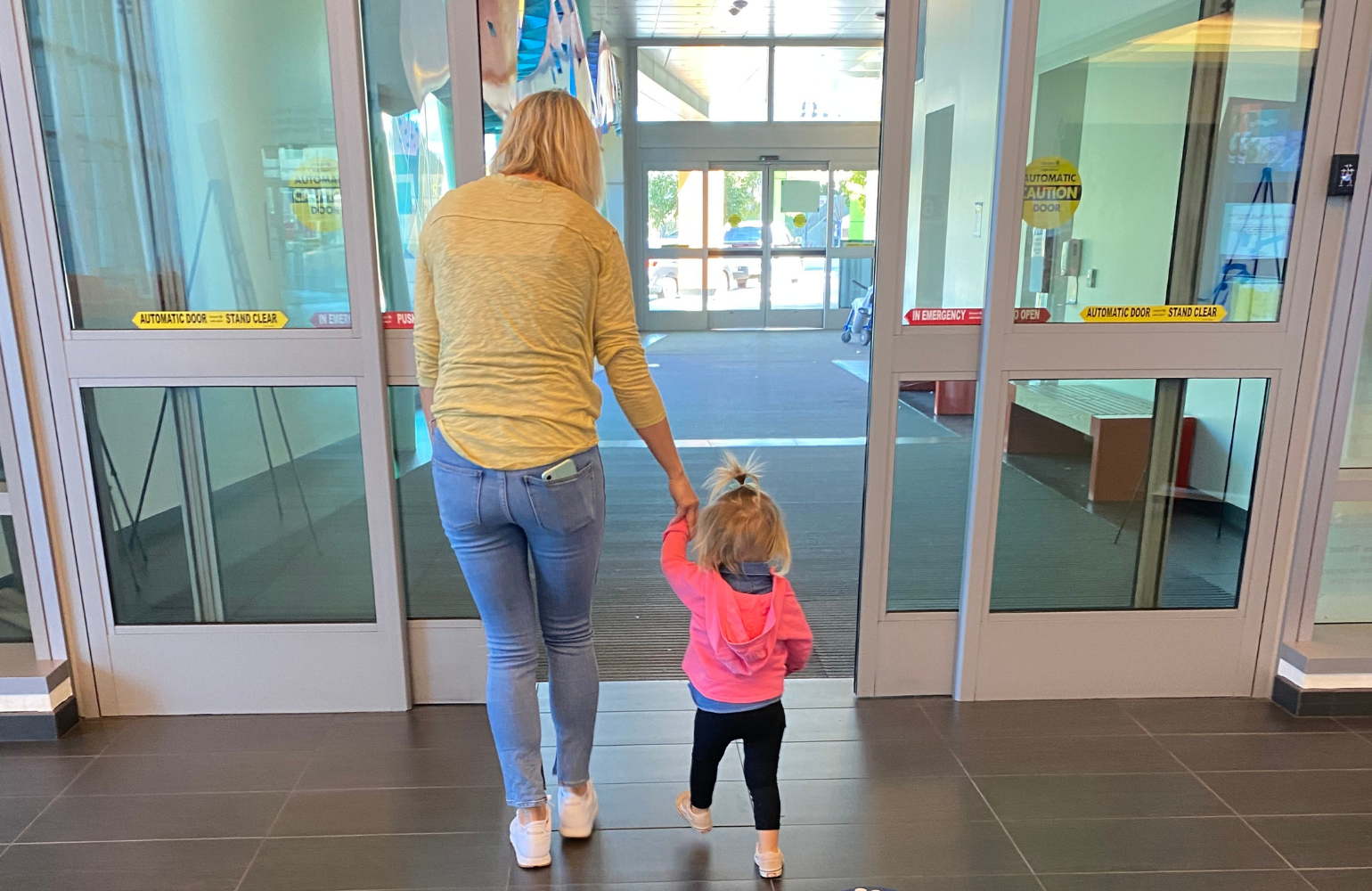
The day they took her last IV out of Courtney’s arm, she looked at us, sighed a sound of relief, then quietly fell asleep. She knew she had conquered and overcome that awful tumor that had no place in her small body and was ready to get some rest. And the next day, Courtney walked out of the hospital on her own.
Over a year later, Courtney is thriving. She is attending preschool, tumbling classes, riding her scooter, and talking non stop….non stop. She is doing all the wonderful things a three year-old girl should be doing and we are not taking a single one of those “little things” for granted. Our family is getting back to normal with an even deeper appreciation of life and health. We continue to work closely with the pediatric neuro-oncology team at UCSF to monitor Courtney’s health.
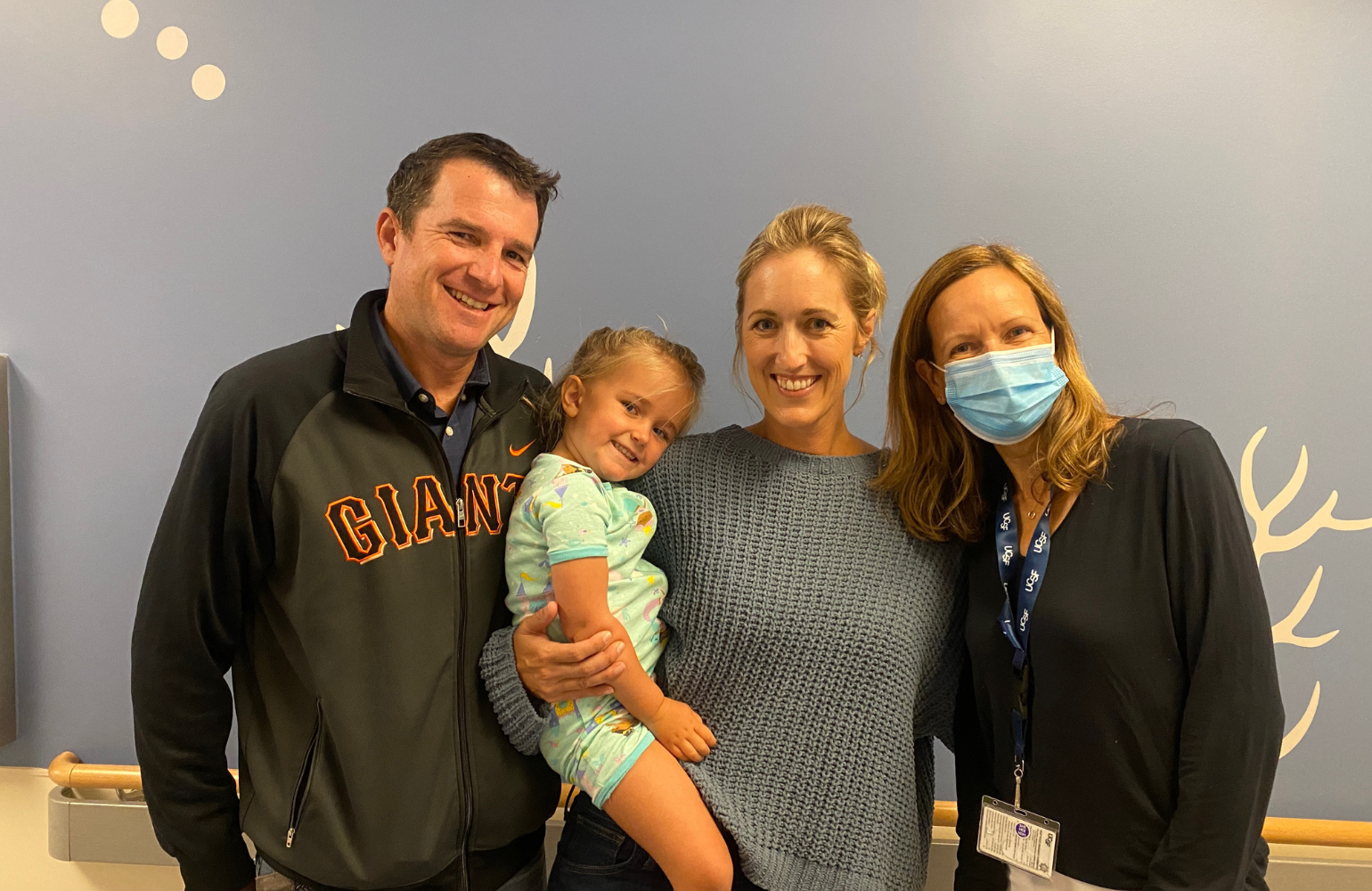
Shortly after Courtney’s recovery, we came across an advertisement in Marin Magazine for the PNOC Foundation (The Pacific Pediatric Neuro-Oncology Consortium Foundation), a leading nonprofit supporting pediatric brain cancer research led by many of the doctors who cared for Courtney, including Dr. Gupta and Dr. Sabine Mueller. We were happily surprised to learn the organization was started by a fellow Marin family whose son had overcome brain cancer. Like the baby birds in our front door wreath, this felt like yet another huge sign — we have always believed that causes find you and not the other way around.
We will always be indebted to the medical community that saved Courtney. We are now volunteering with the PNOC Foundation, actively fundraising to support a global consortium of doctors working relentlessly on advancements in childhood brain cancer research and clinical trials.
Pediatric brain cancer is the deadliest form of cancer in children. We were surprised to learn childhood brain cancer is unlike that in adults and a disproportionately low amount of federal funding goes to research specific to children. Children’s brain tumors require specific research and different treatments. Every year more than 4,800 children are diagnosed each year with brain cancer or a tumor, of whom more than 500 will die in the US alone and nearly 30,000 children are living with a brain tumor today. More than 47,000 years of life is lost to pediatric brain cancer annually.
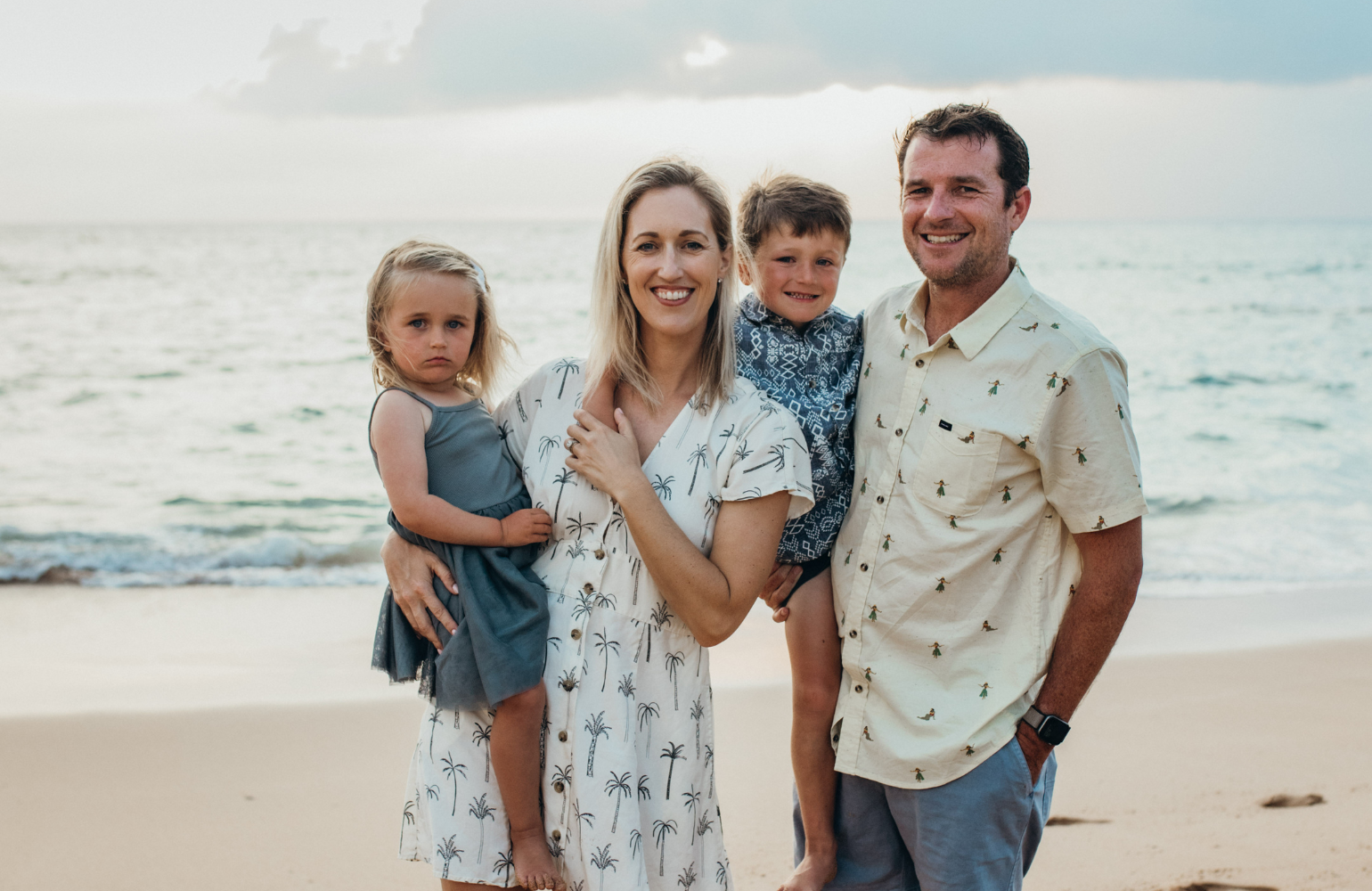
We share our story to offer support and hope to other families who were confronted with a day that likely began as a typical day, but ended very differently. Together we are fighting pediatric brain cancer and tumors, and raising awareness of the shockingly underfunded efforts of the medical community working tirelessly to find new treatments, better patient outcomes, and, hopefully one day soon, a cure.
To all who will hopefully never experience such an atypical day, we offer our advice to hug your loved ones and please contribute to the PNOC Foundation or another charity that moves you if you are able. Life is precious. And a healthy child is the most precious of all.

